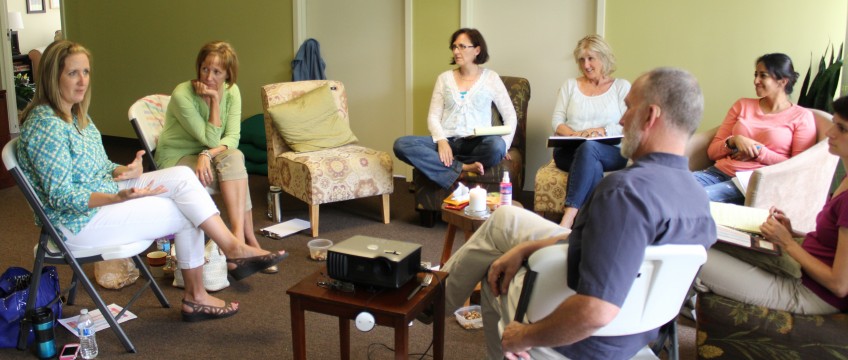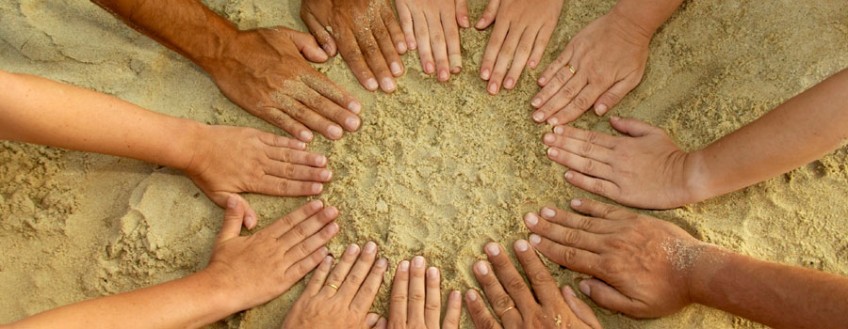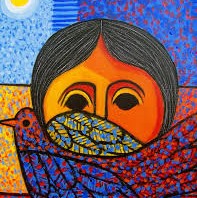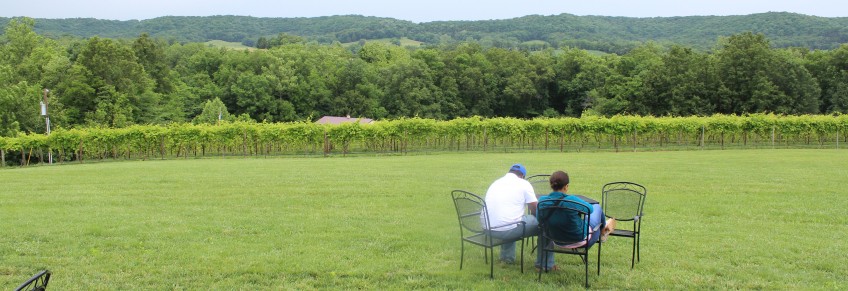“The infinite love that is the architect of our hearts has made our hearts in such a way that nothing less than an infinite union with infinite love will do.”
James Finley
Sermon for Pentecost 2014 based on Acts 2:
The First Story:
I was one of the first ones to enter the room. I like being to an event early so I can sit up front. I don’t hear well and sometimes it helps if I can see the speaker’s lips. I found a seat on the first row.
This was a day for firsts. It was the first event in the first symposium of the Living School of the Rohr Institute. This was the first gathering of the first cohort of the school.
I am privileged to be a member of it. Over a thousand people from all over the world paid $50 just to apply to the school and I was one of 180 who were accepted.
The room was just an ordinary hotel conference room. The back wall could fold to open to the room behind it. As it was it was just large enough for the 180 of us. On the dais was a podium and a table with three microphones.
Others joined me on the front row and we began to chat. Hi, how are you? Where are you from? What prompted you to apply for the Living School?
As we traded stories we could hear the room fill up behind us. There was the energy of the anticipation and of the noise of the conversation and the hum of the air handlers. And there was something else. There was something I can’t quite name. It was like electricity. It was accompanied by a welling up of emotion that caused me to feel slightly out of breath. It was just a bit scary. It was awesome.
This doesn’t happen to me often enough. I want more of this in my life. I think it may be the sensation that arises when we are in community with people who are spiritually mature.
Later, when the three microphones each had one of the faculty members seated behind it, I found tears rolling down my cheeks. I was so full of joy that I was leaking. The person speaking was James Finley. He was the faculty member I was least familiar with. His claim to fame is that he was a student of Thomas Merton but he is a true mystic in his own right.
As I listened to him and wondered about the feeling welling up in me I noticed an odd thing. I could clearly hear each of his words. He speaks slowly and deliberately. None of the words are unusual. He is a plain speaker using simple words.
Nevertheless I had the sense that I didn’t know what he was talking about. He was speaking about a reality that I have rarely if ever glimpsed. And in the midst of a sense of not knowing I was also deeply aware that everything he was saying was profoundly true.
The Second Story:
Forty-three years ago this summer I was between college and seminary and was backpacking around Europe with a Eurail pass. Most mornings I woke up not know where I would be sleeping that night. But for a week of the two months I was over there I lived with the family of the boy who lived with me my junior year of high school.
Gian Carlo Pinza, Gianny, was an exchange student through the American Field Service. When he arrived he couldn’t speak a more than a word or two of English. What he knew he learned from the book he studied on the plane. But knowing not only Italian, but French, Greek, Latin, and a bit of Spanish, it didn’t take him long to master English. A couple of months into his stay he was teaching us new English words.
So this was now my turn to stay with him. Except that I had no intention of learning Italian. I had enough Spanish to get by in Spain and later in Central America. And Italian and Spanish share a few cognates but not enough that I was going be conversational with Gianny’s family.
And what a family. I never quite understood who all these people were. Mostly aunts and few uncles and cousins. I don’t know if they always took all their meals together or this was just a special occasion because I was visiting. In any case, each evening after his father closed the shop out of which he sold all things plastic; we would drive out to the country place and sit around a large table on the veranda.
Dinner was a grand affair. The women had already been there preparing when we men folk arrived and there was always a salad that featured tomatoes from their garden and of course pasta. And there was plenty of wine and beer.
And cigarettes: I had stopped to visit a fraternity buddy who was stationed just outside of Munich and picked up a carton of Marlboro Reds at the PX. Each evening after dinner I would pull out a fresh pack and offer it around the table. They loved those American cigarettes.
Again, I noticed an interesting phenomenon. Even though I couldn’t begin to speak the language except through gestures, both the gestures with my hands and with the offer of cigarettes, as the evening wore on, and the meal was finished and the smokes shared and third or fourth glass of wine drunk, I found that I understood everything they were saying. I understood Italian.
And a Third One:
We tend to think of Pentecost as a Christian holy day. Indeed it is, but the name Pentecost comes from the name Greek-speaking Jews gave to the Hebrew Festival of Weeks. The weeks are the seven weeks after Passover that was the harvest time for grain and so the festival was a time of thanksgiving for the bounty of the harvest and the beginning of the season in which to bring offerings to the temple which came fifty days—thus Pentecost—after Passover. Originally the festival we call Pentecost was a Jewish celebration of harvest and thanksgiving.
At that time there were three major festivals that were celebrated in Jerusalem by the Israelites. The first would be the New Year Festival of Booths in the fall, the second the Festival of Passover in the spring, and third, the Festival of Weeks in the summer.
It was on the occasion of the Festival of Passover that Jesus and his band of disciples was in Jerusalem and it was just before the festival was to begin that he was crucified. When he was killed the disciples returned home to Galilee, confused and afraid and having had strange experiences of Jesus being still among them even though he was clearly dead.
Now, by the testimony of the author of Luke-Acts, Peter and the boys returned to Jerusalem less than two months later. The boys are back in town, and while the girls may have been with them it was only the males who would be allowed to speak. They who fled in fear have now come back filled with power.
How can we talk about what happened. These events that are drenched in spiritual power are not things that can be easily described. They are truly ineffable, indescribable.
But we try. We have to keep in mind that the only way to approach speaking about the divine is through metaphor. God is like…
As soon as we definitively say, “This is God,” we have put God into a box that is too small. Just as I don’t know how to describe what it was like to be in that conference room a few months ago feeling an energy that was a spiritual presence, not a physical one, I suspect the author of the Acts of the Apostles struggled to describe what happened that day. Perhaps he wasn’t there but told the story of those who heard from those who were there. But it any case the words that came were about a mighty wind and about tongues of fire.
This story that we read in the second chapter of Acts of the Apostles is the opening scene in a larger narrative. In this narrative Peter, the buffoon who denied Jesus and fled in fear boldly stands before a huge crowd in the assembly. Gathered are thousands of Jews who have come from many countries to be in Jerusalem for this festival. They may speak enough Hebrew or Greek to get by but they certainly don’t know Aramaic, the language of Galilee.
And yet, here are these men, these peasants and fisherman from a backwater region who are on fire…who are so full of spiritual energy that it is overflowing… and those gathered feel it too. There is something about what is happening that is speaking to them in their own language.
No, no that can’t be it. This is just ecstatic speech. Someone here is just drunk.
And it is just that confusion and skepticism that is the beginning point of Peter’s address to the crowd. It is just their sense that what is making sense to them is nonsensical that Peter uses to persuade them about the truth of the gospel. And at the end of the day 3,000 have been baptized and the Church has been born. This is the story we find in the lesson for today from Acts. What do we make of this?
It is important to note that the thrust of Peter’s sermon is that Jesus was one who did great deeds and was rejected by the leadership of the nation and even crucified. And while no doubt Peter was, at least at this point, an inspired orator, we can assume that Jesus himself could tell a good story and he got killed.
Jesus walking among the people and teaching and healing was not enough. What made the difference was not the leadership of Jesus but the discipleship of the apostles. It was their testimony by the nature of their presence in the assembly that changed people’s hearts and minds.
My pastor, Allen Grothe, tells a story about Phillips Brooks who was an Anglican priest and a great preacher in Boston toward the end of the 1800’s. The story is about a question put to Brooks about the source of his faith. “Why are you a Christian?” he was asked. After a bit of thought he said, “Because of my Aunt Tilly.” It seems that it was the testimony of her faith and the impact that it had on young Phillips that had most influenced him.
We may like the idea that the Church exists because of the ministry of Jesus and the mighty power of God. But the truth is that the Church was born and exists to this day because of the faith of people just like you and me who allow into their experience a deep awareness of the presence of the Holy. When we live our lives in the remembrance of God, when we have the relationship with the Divine that Jesus had with the one he called Abba, Daddy, we become the Body of Christ.
We are the Church. Today we celebrate the birthday of the Church by opening our hearts anew to the indwelling Spirit. Thanks be to God.






